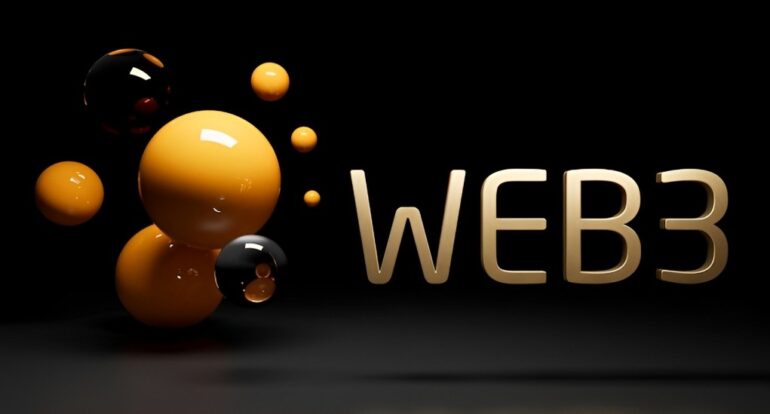TL;DR:
- The AI market is valued at nearly $100 billion and is poised for exponential growth.
- The global chatbot market reached $840 million in 2022.
- Blockchain firms leverage AI chatbots to aid Web3 developers in app creation.
- RippleX and Skale Labs are developing AI chatbots for XRP Ledger and smart contracts.
- SettleMint introduces AI Genie for smart contract development.
- AI chatbots complement human roles, not replace them.
- Chatbots enhance Web3 learning, making it more inclusive.
- Challenges include execution infrastructure, ethical biases, data privacy.
- AI chatbots accelerate Web3 development, fostering innovation.
Main AI News:
The artificial intelligence (AI) sector is emerging as one of the globe’s most rapidly expanding industries, currently boasting an estimated market worth of nearly $100 billion, with projections indicating exponential growth. Simultaneously, the utilization of AI-driven chatbots is gaining momentum. Recent insights from Precedence Research reveal that the global chatbot market surged to an impressive $840 million in 2022.
Seizing Opportunities in Web3 with AI Chatbots
Amidst the burgeoning landscape of AI and chatbots across various sectors, the Web3 domain is embracing this trend with fervor. Blockchain companies are at the forefront, spearheading the development of AI chatbots aimed at assisting developers in the efficient and accelerated creation of applications.
Aanchal Malhotra, the Head of RippleX Research—an entity dedicated to advancing the XRP Ledger within Ripple—disclosed to Cointelegraph that RippleX is actively crafting an AI chatbot to cater to the inquiries of XRP Ledger developers. Malhotra emphasized the transformative impact of this initiative, stating, “Rather than sifting through extensive documentation and client libraries, developers will soon have the ability to direct their queries to the AI chatbot, instantly receiving answers. This streamlined approach will significantly expedite the transformation of ideas into functional applications.”
Skale Labs, the pioneering force behind the Skale blockchain network, is also on the cusp of releasing an AI-powered chatbot. Jack O’Holleran, the Co-founder and CEO of Skale Labs, elaborated on their innovative integration of AI and machine learning capabilities, enabling developers to deploy pre-trained AI models within smart contracts. O’Holleran emphasized the remarkable efficiency gains facilitated by AI, remarking, “AI-driven smart contracts operate seamlessly, without human intervention, even at high volumes. This empowers developers to build swiftly and effectively.”
O’Holleran further underscored the imminent public release of Skale’s AI chatbot, highlighting its primary utility in engineering development support. He noted, “Developers are currently experiencing record-breaking efficiency and productivity gains thanks to AI. A key area of support revolves around instant access to technical and coding documentation, significantly enhancing their capabilities.“
Aligning with this sentiment, Matthew Van Niekerk, CEO and Co-founder of SettleMint—a blockchain programming tool—affirmed the indispensability of AI tools for developers. Van Niekerk revealed that SettleMint has recently introduced an AI Genie engineering assistant into its platform, facilitating rapid smart contract development, quality assurance testing, and debugging. He elucidated, “Our AI Genie is meticulously designed to expedite organizations’ journey from ideation to production, enabling them to harness the vast $3.1 trillion potential unlocked by blockchain technology.”
Van Niekerk emphasized that SettleMint’s AI Genie complements human capabilities, rather than replacing them. This distinction is crucial, given growing concerns that AI-powered assistants might eventually supplant human roles. Van Niekerk elucidated, “The tool is positioned as an engineering assistant, not a substitute for engineers. It streamlines mundane processes and resolves complexities, empowering developers and engineers to focus on pioneering solutions that yield tangible returns for their enterprises.“
Unlocking Knowledge and Efficiency
To provide context, William Baxter, Chief Technology Officer and Co-founder of the tokenization platform Vertalo, disclosed their use of chatbots to distill and present data to both internal and external audiences. Baxter asserted that assisted learning represents one of the most promising applications of chatbots, stating, “Instead of laboriously scouring vast volumes of information or relying on curators, chatbots enable users to access summarized insights. When learning new programming languages, exploring blockchain technologies, or delving into applications, chatbot feedback proves immensely valuable, even if not entirely flawless.”
Navigating Challenges on the Path to Implementation
Despite the potential of AI-powered chatbots to enhance Web3 development, several challenges loom on the horizon. O’Holleran acknowledged that AI-driven smart contracts, while beneficial for technical development, necessitate a robust infrastructure for on-chain execution, especially in networks characterized by high gas fees and variable costs. Skale Network has addressed this concern by implementing on-chain fees, ensuring predictability and cost-effectiveness.
Lydia Mark, Director of Communications at Magma AI—a project focused on creating an AI chatbot for Web3 technology education—noted that ethical biases pose a significant challenge for AI chatbots. Mark emphasized the risk of inherited biases from data training, which could potentially harm the broader ecosystem. Magma AI addresses this issue through bias detection and mitigation techniques.
Another paramount challenge revolves around data privacy and security. Van Niekerk stressed the importance of adhering to internal business policies and government regulations regarding data privacy when developing or deploying AI assistants. He highlighted that SettleMint’s AI Genie is intentionally designed as an optional tool, allowing enterprises to opt-in only when necessary to mitigate privacy-related risks.
In conclusion, despite these challenges, AI chatbots are undeniably pivotal in democratizing Web3 development, ensuring that knowledge and expertise are readily accessible to a diverse spectrum of developers. The presence of AI developer support technology is poised to accelerate the learning curve for Web2 developers, ushering in a new era of efficiency and innovation within the Web3 landscape.
Conclusion:
The integration of AI chatbots into Web3 development by blockchain companies signifies a pivotal shift in the industry. This innovation promises to streamline the development process, making it more efficient and accessible to a wider range of developers. While challenges like infrastructure, biases, and data privacy persist, the overall impact of AI chatbots is set to drive greater knowledge sharing and foster a new era of innovation within the Web3 landscape, with significant market potential.

